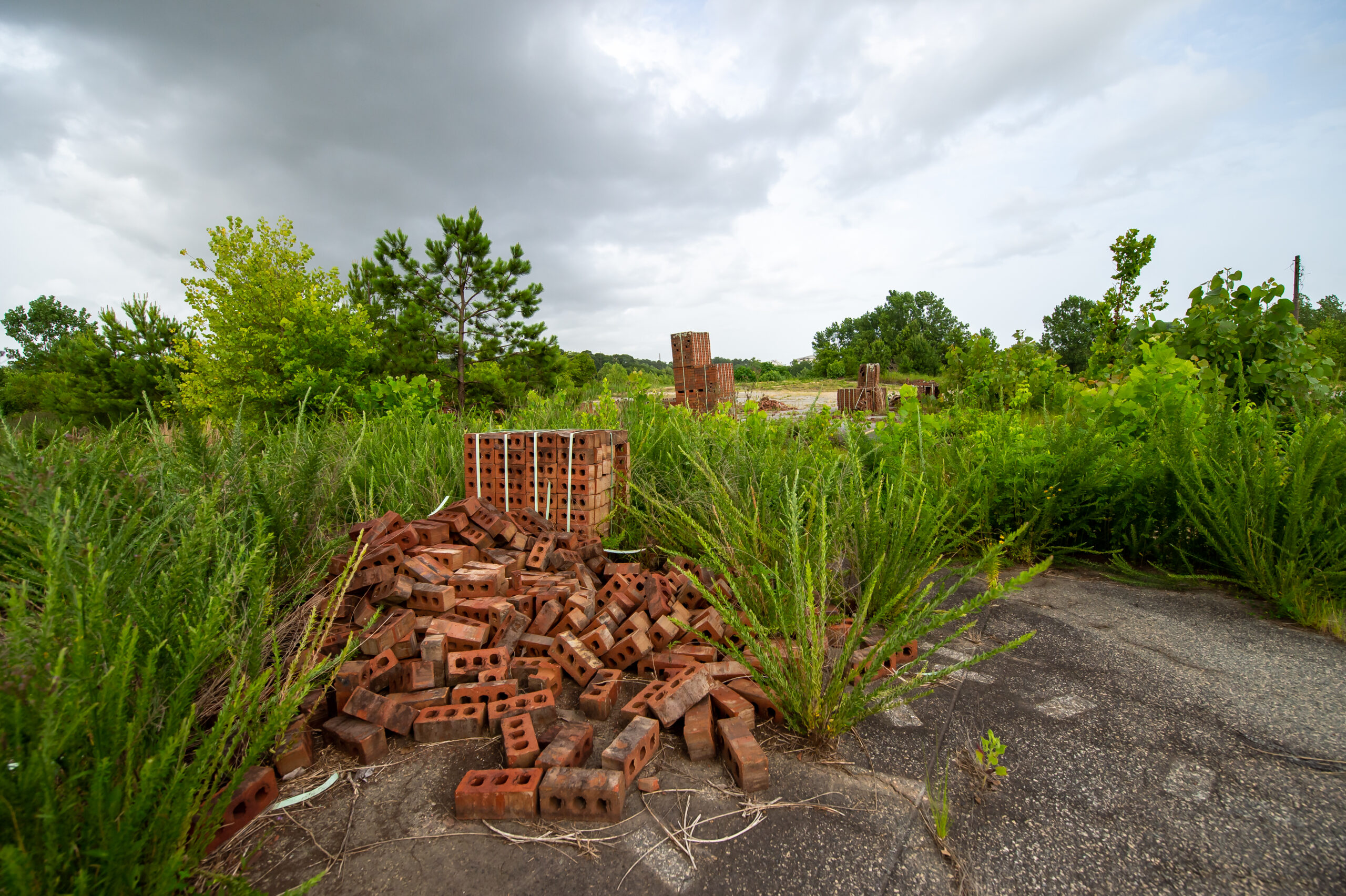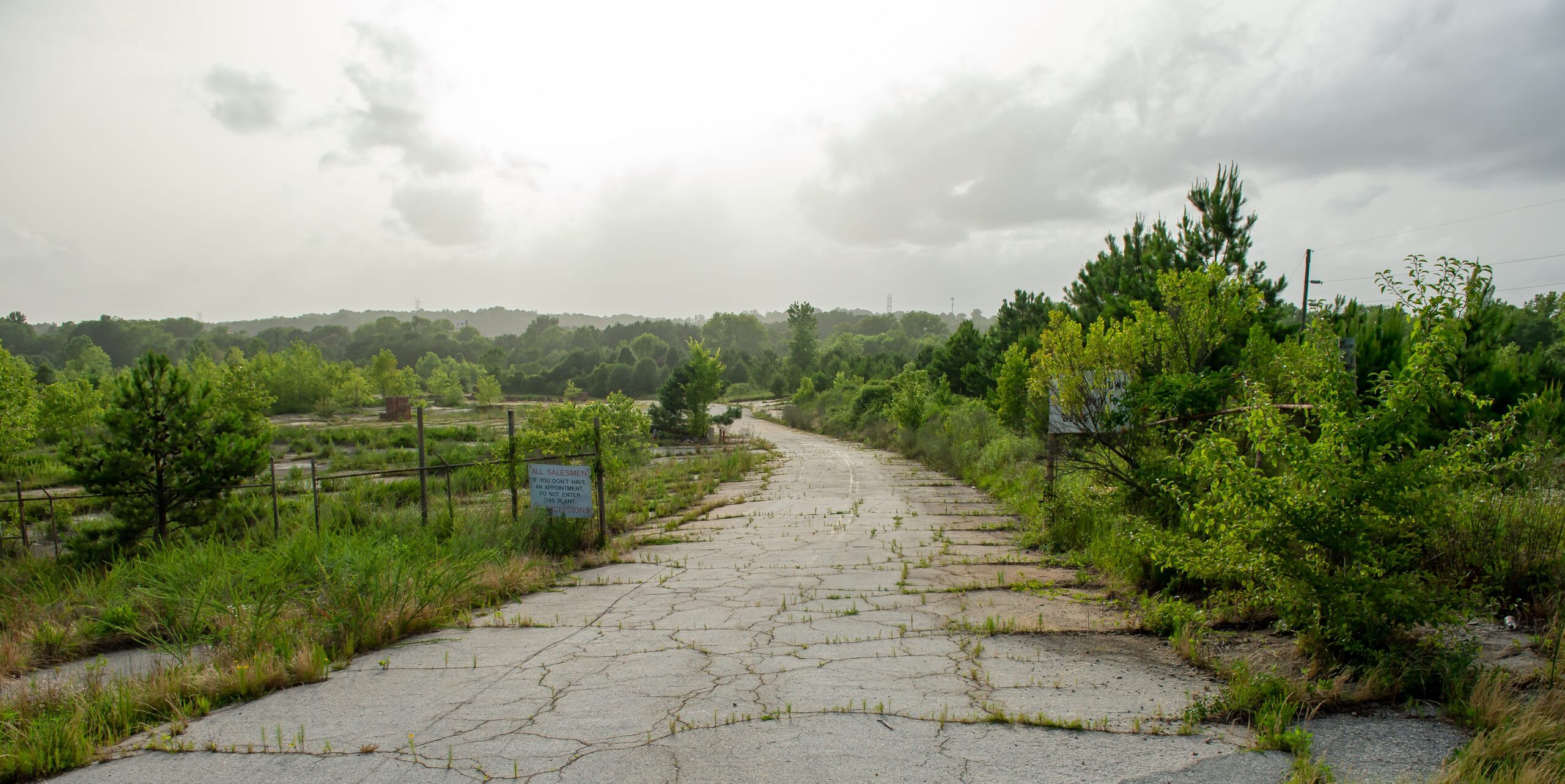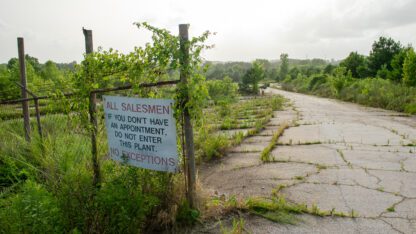Atlanta City Council has approved legislation for the city to buy the former site of the Chattahoochee Brick Company.
Local activists have been fighting for years to protect the property along the banks of the Chattahoochee River instead of allowing industrial development there.
The brick factory was owned by former Confederate captain and mayor of Atlanta James English. The people who worked in it — primarily Black men — had been arrested, often for petty crimes, and then leased out to the company to endure hot, grueling work, living in filthy conditions and eating rotting food. People were beaten and died at the factory that helped build modern Atlanta.
“It’s been very personal for me,” said Donna Stephens, founder of the Chattahoochee Brick Company Descendants Coalition, who has led the advocacy to stop development.
Stephens lives in the Atlanta neighborhood of English Park. She said she’d been curious to find out who her community was named after. When she learned who English was, and what he’d been involved in, she said she was floored.
“This place is probably one of the most horrific post-slavery sites in America,” she said.
Religious leaders spoke at a memorial event at the site over the weekend, marking the rare confluence of Ramadan, Passover and Easter.
“We are here to honor the descendants of the Chattahoochee Brick Company,” said Dr. Kwame Kalimara as he opened with an invocation. “Listen to the pain and the tears of our ancestors. Because what do they want? They want justice, they want peace.”
Mayor Andre Dickens, speaking to the gathered crowd, said he believes his own home may have been built with bricks from the factory.
“The people are going to reclaim this land,” he said. “It is time that this space with such an ugly past be turned into something beautiful.”
He said the city will build a park and a memorial on the property, which is currently largely cracked concrete, scattered piles of old bricks and dense forest.
“Unimaginable horrors”
This piece of Atlanta and American history isn’t widely taught. Stephens said she feels like history books jump from the end of the Civil War to the Civil Rights Movement, skipping over decades that saw Black progress and backlashes to that progress.
“The history books stop with slavery and pick up with Dr. King,” she said. “It’s ridiculous.”
Georgia State University professor Douglas Blackmon, who wrote the Pulitzer Prize-winning book “Slavery By Another Name” about the convict leasing system, said the people who were forced to work at Chattahoochee Brick suffered “unimaginable horrors.”
“It was a gruesome, barbaric, nightmarish place that existed in America in the 20th century,” he said.
And it wasn’t unique. Blackmon said there are more than a dozen other places like it in Georgia alone, and more in other Southern states. Tens of thousands of people would have been working in that system at any given time, he said — and this was decades after the end of the Civil War.
“It sustained the idea for a lot of white Americans that African Americans were somehow inclined to be criminals, and that the world is better and safer if there’s this incredibly harsh instrument of the state that is holding down African Americans,” he said. “That notion that is also at the heart of the mass incarceration issues that we have today is born in this violent, oppressive system.”
The National Center for Civil and Human Rights is working on a project to teach people more about convict leasing in Atlanta, and also about the 1906 Race Massacre in Atlanta where at least 25 people were killed.
“I think in Atlanta there is a narrative that has taken hold in public memory about what the history of this city is, ‘the city too busy to hate,’ and a range of other slogans,” said Center CEO Jill Savitt. “I think we have to dig a little deeper … and make sure that we’re telling the story of the entire Atlanta community.”
The Center is convening community members, nonprofits, local governments and companies to talk about what a memorial could look like at Bellwood Quarry, which was a center of the chain gang system in Atlanta and is now part of the city’s new Westside Park. She said the Chattahoochee Brick site is part of that conversation too.
Savitt said that, as far as she knows, there’s no other memorial in the country dedicated to the people who suffered under the convict leasing system.
“No community is going to move forward on racial justice, on economic justice, on a range of issues, unless we can be really clear-eyed about where we’ve been,” she said.
City councilman Dustin Hillis said he expects the city to close on the property in May. The nonprofit Conservation Fund has worked with the city and the site’s previous owner on the purchase.
As for what ends up being built at the site, Stephens said she has been so focused on protecting the land she hadn’t thought much about what should go on it – aside from nothing industrial. She said she hopes “to get people to focus on what is right. And what is feasible. And what is good for the community.”








